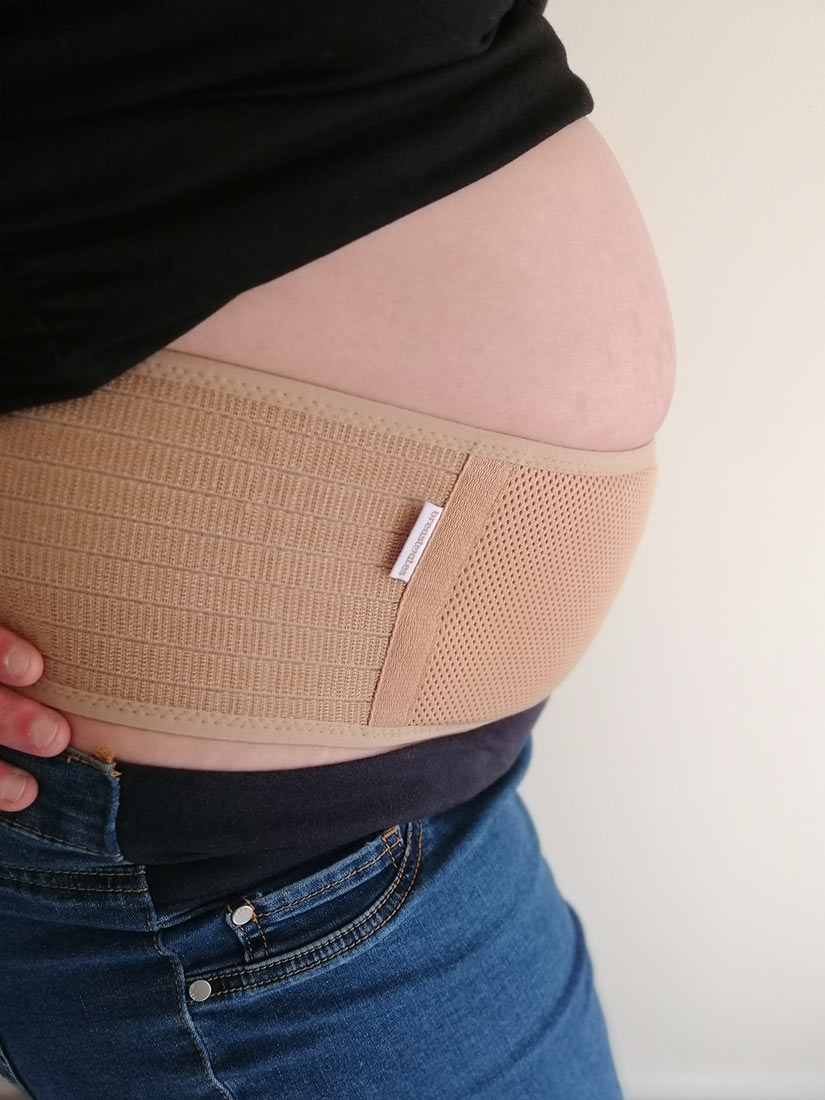Why do they call it “morning sickness” when I feel terrible all day long?

Think of the pregnant women you’ve seen in the movies. They retch delicately over the toilet, wrinkle their noses at someone else’s seafood lunch, or slightly gag when they have to pick up their dog’s poo in the park (while wearing colour-coordinated athleisure and rocking a blowout and perfect makeup). Are they ever sweaty-faced in the car at rush hour, trying desperately to get home before throwing up into their handbag? Trying not to blow chunks near the meat case in the supermarket? Pasting on a smile during the late-afternoon videoconference while eyeing up the packet of dry crackers and the rubbish bin they’ve got strategically placed nearby, just in case?
By now you’ve probably got the idea that the phrase “morning sickness” is a flat-out lie. Yes, you can feel nauseated in the morning. But you can (and probably do) feel sick at just about any time of the day and night. It might be fairly predictable, and hit you at similar times or under similar circumstances – best avoid the meat aisle, and probably the seafood aisle, for the duration. It can also crop up at random and inopportune moments and catch you unawares. This is all, unfortunately, quite normal. That doesn’t mean you have to be happy about it, or just sit back and accept it.

How to cope with morning sickness
Figure out what you can eat, and stick with it
Eating a healthy, balanced diet during pregnancy is the ideal that we should strive toward, but when you have morning sickness, it’s not always strictly possible. In order to get through the worst of it, you might need to adjust your expectations a bit. When you find foods you can stand to eat, or can keep down, then by all means give yourself permission to stick with those. Dry crackers, ginger tea, digestive biscuits, pretzels – yes, we know they’re not going to sustain you long-term, but in the short-term, they might help keep the nausea at bay. Stuck for ideas? Here’s a list of 100 foods to try when you have morning sickness – not all of them are the “traditional” things you may have heard about, but all of them are recommended by mums who have been there, done that. : 100 things to eat for morning sickness
Stay hydrated
One tip that we’ve heard multiple times from mums-to-be and mums dealing with morning sickness is that it’s critical to stay hydrated! An empty stomach can make your nausea worse, which is very difficult when you don’t feel like eating anything because eating also makes you feel sick. But an empty stomach and dehydrated body will make you feel even worse. Try sips of whatever liquid you can manage – diluted cordial, watered-down juice, ginger ale, ginger tea, electrolyte drinks (talk to your chemist about the safest ones for pregnancy), and plain water. If you feel like you’re getting dehydrated, talk to your LMC straightaway as you may need IV fluids to help get you back up to a good level. Being well-hydrated can help to reduce the nausea you feel and can help you to feel well enough to try to eat something.
Slow it right down
You’re pregnant, which means you’re growing another human being in your body, and that takes energy! If you’re used to a fast-paced life and you feel you can keep it up, that’s great. But if you need to slow down, take it easy, put your feet up, let the housework go, take time off work or work shorter days/weeks, delegate to others, or any combination of those things – do it. And ask friends for a bit of help. Chances are they’ll be happy to help you by doing simple things like running to the supermarket, picking up your older child from school, or even pegging out the washing. This is the time to call on your village to help – you can return the favour when you are well enough.
Talk to your LMC
If morning sickness is really getting you down, or you’re finding it hard to cope, have a chat to your lead maternity carer (LMC). Morning sickness may be common, but that doesn’t mean you have to just suffer through it without help. You may need medication, or your LMC might have some good tips to help you manage the sickness. If you need time off work, your LMC can sign you off or provide their professional opinion to your employer that you be permitted to come into work later in the morning, work from home for a while, or take a few days (or longer) off. Morning sickness that is debilitating might be a serious condition known as Hyperemesis Gravidarum, and your LMC needs to be able to assess you to determine if you need more significant treatment or possibly a stay in hospital. You can read more about Hyperemesis Gravidarum.
– You may also like –
 |
 |
 |








